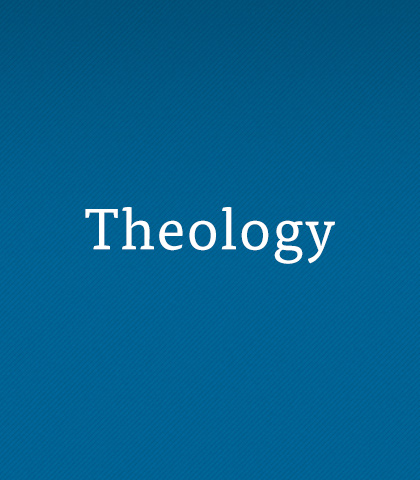Mysteries That Defy Explanation
In this paragraph out of Solomon's journal (Ecclesiastes 8:10-17) we find the wise man, hoping to balance idealism with realism.

What words come to mind when you hear the term theology? Dry…Dreary…Doubtful…DULL? You’re not alone.
Too often we don’t realize that theology—thinking about God—is an intimate part of our everyday lives, rather than something that takes place in ivory towers crowded with bearded men crouched over dusty books. We each engage in theology because we each have a set of beliefs about God. But rather than being content with our ideas about God as they now stand, we should each have a desire to know God better than we do today. If you’ve got that desire, then you’re ready to do theology!
Let these resources point the way to a faith more deeply connected with who God actually says He is.
In this paragraph out of Solomon's journal (Ecclesiastes 8:10-17) we find the wise man, hoping to balance idealism with realism.
Ecclesiastes is not only the story of one man's experience but of all who attempt to live their lives apart from God.
The person of character is one who knows the truth and applies it to the circumstances life brings. How can we make the truth “stick”? God's Word makes it clear.
Revelation is notoriously considered the most difficult of all the Bible books…completely unique, full of symbols, and awesome in scope. Regrettably, Revelation has occasionally become the playground of religious eccentrics, fodder for prophecy “fanatics” who seem compelled to find in Revelation a detailed end-times timetable—right down to the very day of the Lord’s return.
Someone has correctly coined Jude’s letter with the title “The Acts of the Apostates.” The primary apostates in the first century were the Gnostics, who embraced the philosophy that humans could do anything they liked, as no one is under any moral obligation to his or her physical body. This mindset led to rebellion against authority, irreverence, presumptuous speech, and a lifestyle marked by unbridled license.
John singles out three men for observation and instruction. Gaius, Diotrephes, and Demetrius, while actual personalities in the early church, represent three types in the church today. We’ll find much that is practical for our churches as we examine these 15 verses together.
John’s second letter is much less complicated than his first—perhaps because it’s a personal and private letter. In it John mentioned “truth” five times and “love” four times. And both are key to understanding 2 John. John’s desire was for “the chosen lady” who received this letter to maintain a balanced perspective on life: love and truth…practice and doctrine…walking and standing…accepting and rejecting. A balance we need to maintain today.
In this study, we will look at a five-chapter letter appearing simple and uncomplicated yet, in reality, is both profound and complex. In the epistle of 1 John, he emphasized the nature of that life as possessed by God’s children.
In 2 Peter, the Apostle dealt with the internal enemies—false prophets and other subtle adversaries—who twisted the truth. Of special interest to Peter were false teachings regarding the return of the Lord as well as our life of service and purity prior to the event. The tone of 2 Peter is that of an urgent warning, urging all readers to beware…to be ready.
A quick glance at the first few verses of 1 Peter is enough to give us an understanding of Peter’s message to his readers: hope for the hurting. According to verse 1, the hurting were those residing as aliens, scattered throughout vast regions of the Roman Empire. These Christians were objects of social ostracism, slander, mistreatment, and threats. They needed encouragement.
This is to test
This is to test an ad block custom module.